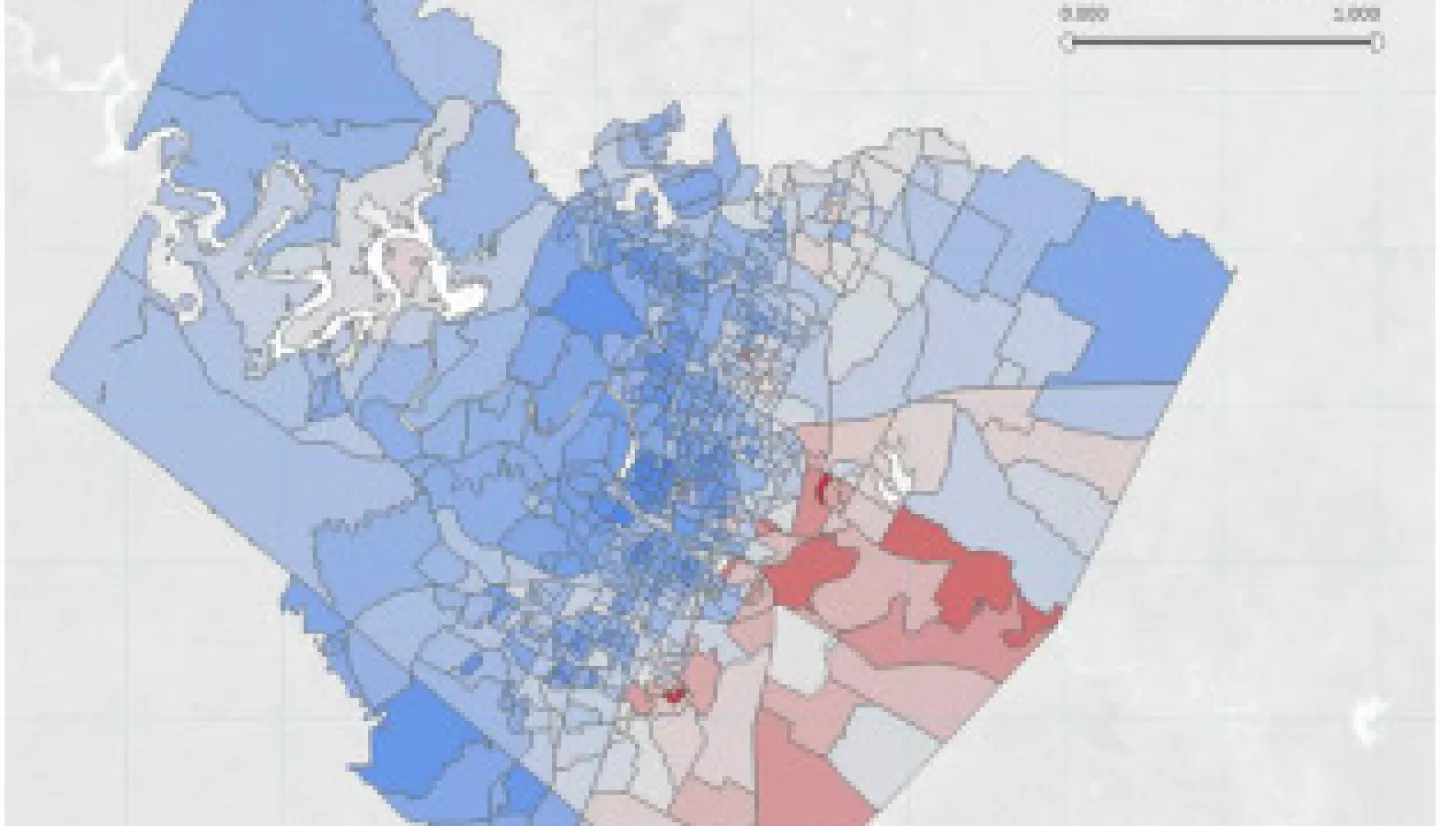Team Members: Dev Niyogi (University of Texas at Austin), Carmen Llanes Pulido (Go Austin, Vamos Austin), Marc Coudert (City of Austin), Sergio Castellanos (University of Texas at Austin), Matt Bartos (University of Texas at Austin), Paola Passalacqua (University of Texas at Austin), Jacqueline Moss (University of Texas at Austin), Harsh Kamath (University of Texas at Austin), Jessica Jones (University of Texas at Austin / City of Austin), Nina Collard (St. Edwards University), Elizabeth Dyer (Allegheny College)
Executive Summary: The City of Austin, TX (ATX) wants to strategically address equity and environmental justice (EEJ) through climate resiliency and infrastructure investment options. This strategic path has challenges. One important being, prioritizing the neighborhoods where investments are made relative to the hotspots of environmental stresses they experience. Our project partner, Go Austin/Vamos Austin (GAVA), has compiled information and experiences that show the disproportionate environmental extremes the historically underserved neighborhoods face and the additional costs they incur due to rising housing prices and associated cost of living. Yet, for community groups to advance the arguments and advocate for meaningful municipal policy change they need to better identify leverage points in the local policy process and better environmental data. This data integration project combines municipal policy analysis, local community experiences and independent geospatial data from academic teams to provide a more effective means for the City to undertake EJ decisions.
Accordingly, our transdisciplinary team from GAVA, City of Austin, and University of Texas at Austin (UT), is integrating satellite data products to advance equity and environmental justice by building on UT’s Austin Area Sustainability Indicators data portal (A2SI, austinindicators.org, led by PI Bixler). From this work we will develop the “climate atlas”. Concurrently, we are conducting an extensive analysis of city council resolutions so that the team has a better sense of the underlying inputs and proposed actions related to city resolutions related to climate extremes and on the ground impacts. At the intersection of the climate atlas and the policy analysis will be an “advocacy and accountability” guide for community groups. This will be developed in year 2 of the project.
An underlying goal of this project is to cross the boundary between community organizations, the university and the City decisions spheres to advance equity-based and resilience-related outcomes, which we refer to as “reflexive co-production.” For us, reflexive co-production is where partners acknowledge the various starting assumptions and find alignment in undertaking the research process and project deliverables. Iteratively revisiting our assumptions will help us more directly align science and action. Our overarching hypothesis is that by integrating remote sensing observations, socioeconomic data, survey data, and qualitative data that we can equip community groups with the tools to advocate and advance planning and city decision-making in ways that are more equitable and just.
